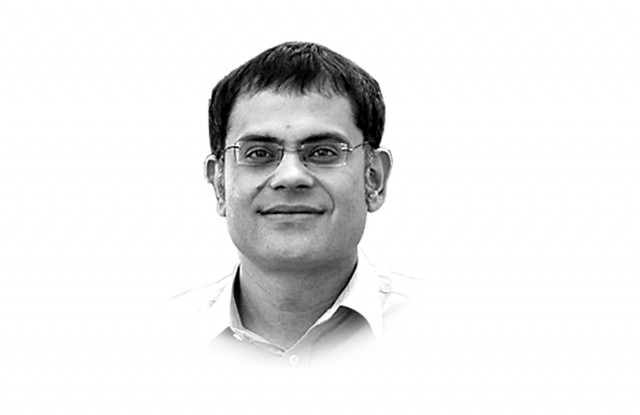Pakistan’s polio crisis
Pakistan’s polio problem is a reflection of how we neglect our social sectors at the expense of everything else.

Pakistan’s polio crisis
During 2010, 144 polio cases were reported in the media; higher than 2009 levels when 116 polio cases were identified. There is no question that poorer and conflict-ridden districts are more likely to be hit by the virus. It has been noted in the government’s own documents such as the draft National Emergency Action Plan (NEAP) 2011, that upto 20 per cent of children in the country are deprived of the third (critical) immunisation dose that leads to increased vulnerability to this crippling disease. In 2011, polio patients increased in Balochistan and Sindh, as they decreased in Fata and Khyber-Pakhtunkhwa by 30 per cent.
In Balochistan, districts bordering Afghanistan and Karachi in Sindh remain high-risk areas. Karachi’s three localities where cases have been reported are Gadap, Baldia and SITE and this may have to do with migration in the recent years due to conflict and/or natural disasters. Thus, the challenge compounds for the federal and provincial governments to tackle this disease.
Earlier, immunisation campaigns have been affected by the fatwa’s issues by clerics declaring such campaigns a conspiracy of the West. Other efforts such as the introduction of iodised salt in the northern parts of Pakistan suffered as the mullahs declared that immunised salt turned men impotent. But the recent discovery of a fake immunisation campaign by the US Central Intelligence Agency (CIA) has been the final confirmation of sorts. Apparently, the CIA in its drive to find Osama bin Laden, engaged one Dr Afridi and his team went from house to house to provide vaccinations for hepatitis and collected DNA samples. Perhaps, Bin Laden’s family was identified through this means, Afridi languishes in jail and the US is appealing for his release. But this awful ploy has caused much harm to the state of immunisation in the country.
According to a report in The Guardian (March 2, 2012) , a group of US NGOs coalition has written to the CIA director that such “use of the cover of humanitarian activity” for intelligence purposes “casts doubt on the intentions and integrity of all humanitarian actors in Pakistan, thereby undermining the international humanitarian community’s efforts to eradicate polio, provide critical health services, and extend life-saving assistance…”. This is a laudable step and within Pakistan, local health groups and media should also undertake advocacy in this direction.
Our maverick politician, Sheikh Rasheed has been making some outrageous claims on TV shows. Rasheed accused Unicef (actually the WHO) of using dubious ‘Indian’ polio drops in Pakistan. This is the most vile level of politics that anyone can play in a country where polio incidence is alarming, to say the least.
Pakistan’s polio problem is a reflection of how we neglect our social sectors at the expense of everything else. Public health crises such as dengue, fake medicines etc have already exposed how our systems and regulations are virtually collapsed. It is time for the elected governments to reorient their priorities and deliver on their promises. Two key factors, which have marred the polio campaigns — ineffective accountability and monitoring systems — cannot be rectified without effective local government reform.
The polio crisis also reminds us that nuclear weapons do not ensure the safety and prosperity of our future generations.
Published in The Express Tribune, March 6th, 2012.



















COMMENTS
Comments are moderated and generally will be posted if they are on-topic and not abusive.
For more information, please see our Comments FAQ